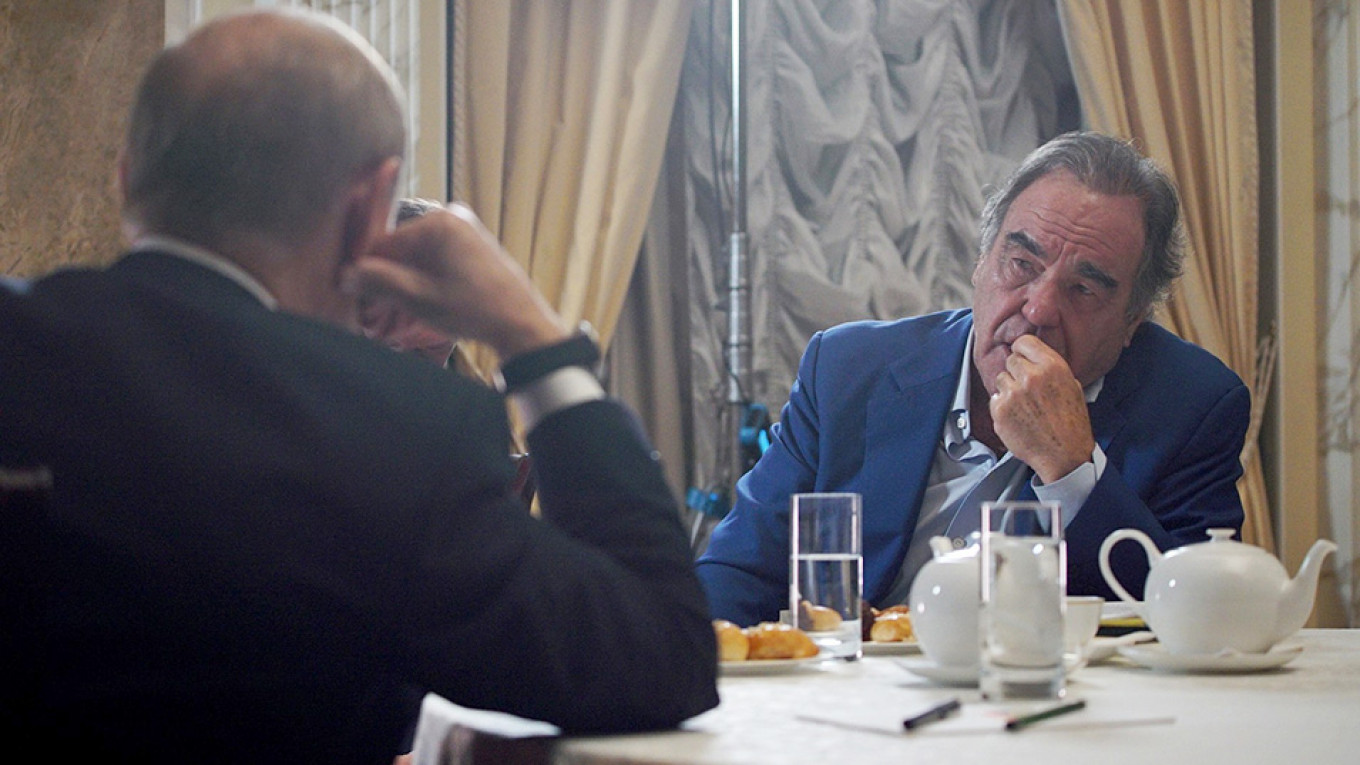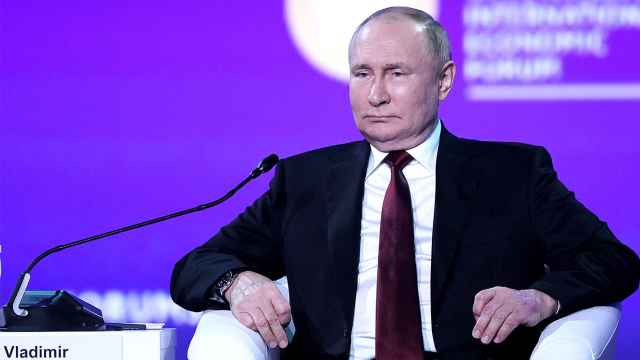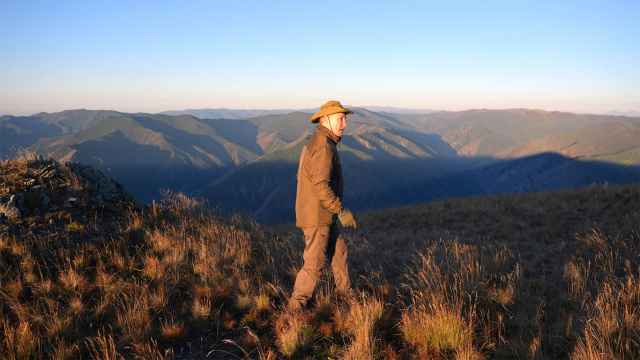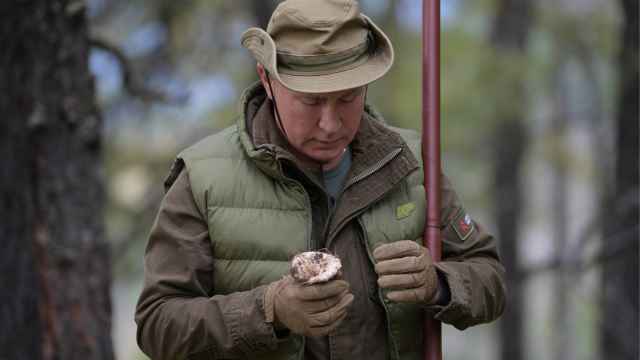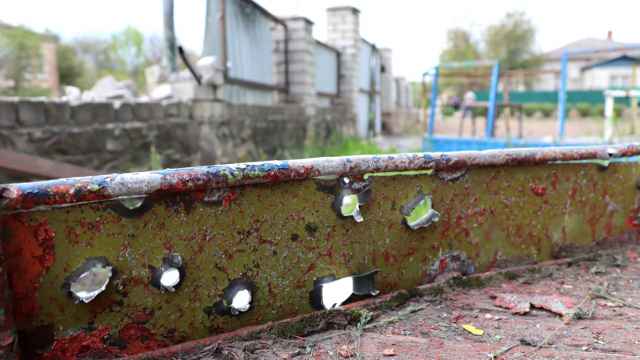Two men sit at a table talking. They like each other, but neither remembers why. They really have nothing to say to each other, but their mutual sympathy and the fact that cameras are rolling prevent them from putting a stop to the charade.
Each is probably lost in his own thoughts and so first one, and then the other, loses the thread of the conversation. Then one snaps out of it and asks, “So, what were we talking about?”
At times, they both make an attempt to “speak the other’s language.” His interlocutor responds with gratitude and offers a detailed but confusing response, alternately shocking and boring his listener. And then the whole thing repeats, but their mutual sympathy and the incessant cameras prevent them from stopping.
O. Stone: I am very worried about you
V. Putin: Why?
The conversation between Oliver Stone and President Vladimir Putin for the director’s latest movie “Revealing Ukraine” is probably the most ludicrous text ever published on the official Kremlin.ru website. It almost smacks of sabotage, as though some official decided to cast the Russian strongman as the leading character in an absurdist drama.
Several interesting remarks by Putin to the effect that former U.S. President Barack Obama broke unspecified agreements on Ukraine, that the Russians and Ukrainians are one people, that Medvedchuk is a Ukrainian nationalist but a good guy overall improved the film. But overall, one can't help but wonder what the point of the bizarre show was.
O. Stone: What’s the connection
V. Putin: Connection between what?
Western celebrities who profess that they are enamored of the Russian leader are often compared to members of the intelligentsia who became “friends of the Soviet Union” and visited Moscow during the grimmest years of Stalinism.
They would later write in rapturous tones of their visit — and less frequently, of their disappointment — of their impressions of the model collective farms, factories, and pioneer camps they had seen, and of their meetings with Stalin.
Nobody, however, is expecting any intellectual fruits from today’s “friends of Russia.” Oliver Stone, with his movies and books might be an exception, but it is obvious to the Kremlin too that those books and films are the pet projects of this Hollywood conspiracy theorist and nonconformist.
If he had not filmed anything after his meetings with Putin, nobody in Moscow would have been upset. The Kremlin does not attempt to use such guests to promote Russian values or the official line. If it did want to push its propaganda or burnish its image, the Kremlin would probably invite a higher-profile star and demand some sort of media exposure in return.
The Kremlin is fixated on people who were big in the ‘80s and ‘90s and who need do nothing more now than show up, sit across the table from Putin and eat pastries. Moscow has no direct need of Steven Seagal, Gerard Depardieu, Pamela Anderson, Ornella Muti, or even Oliver Stone.
It’s just that, if individuals who once seemed like celestial beings from another planet have descended to earth and landed in your own front yard, why not invite them over for tea?
It might seem preposterous, but now Putin too seems to reside on some other planet and we, as ordinary earthlings, are not to know anything about his dreams, pleasures, or desires.
O. Stone: When I hear the words “Ukrainian nationalism,” I get worried, because I think of Stepan Bandera and people who have convictions too.
V. Putin: Me, too.
As though posted by some malicious source, this conversation with Stone offers a glimpse into the world of Vladimir Putin who, as he approaches his 70th birthday, is gradually losing his once-sharp reactions and his interest in the world around him.
O. Stone: You have rules.
V. Putin: I have principles.
O. Stone: Ok. But you seem to have rules based on those principles.
V. Putin: Well, yes.
There was no obvious need to publish such a transcript. And yet, it was published. Why? Only because it is advantageous for Putin to publish his personal “Autumn of the Patriarch.” It’s as though he were saying, “Don’t mind me, I’m almost gone anyway.”
V. Putin: I think this is simply unrealistic. I have said so many times.
O. Stone: What is unrealistic?
V. Putin: To change anything.
This article was originally published in Republic.
A Message from The Moscow Times:
Dear readers,
We are facing unprecedented challenges. Russia's Prosecutor General's Office has designated The Moscow Times as an "undesirable" organization, criminalizing our work and putting our staff at risk of prosecution. This follows our earlier unjust labeling as a "foreign agent."
These actions are direct attempts to silence independent journalism in Russia. The authorities claim our work "discredits the decisions of the Russian leadership." We see things differently: we strive to provide accurate, unbiased reporting on Russia.
We, the journalists of The Moscow Times, refuse to be silenced. But to continue our work, we need your help.
Your support, no matter how small, makes a world of difference. If you can, please support us monthly starting from just $2. It's quick to set up, and every contribution makes a significant impact.
By supporting The Moscow Times, you're defending open, independent journalism in the face of repression. Thank you for standing with us.
Remind me later.



